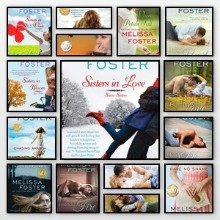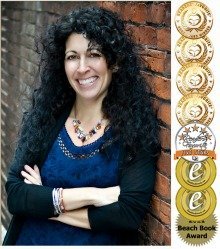If you are writing, you are already a writer! Whether you are writing for a magazine, local newsletter, corporate handbook, or creating your first novel, makes no difference. Writers write. Period. You should think about yourself in those terms, and begin calling yourself a writer, if it is appropriate. Once you have faith in your work, the rest will follow.
Some people feel that books should be written based on outlines, while others use index cards, timelines, and other types of “visual” assistants. I believe you should do what comes naturally to you, and what you are most comfortable with. When I wrote Megan’s Way, I did not use an outline, index cards, or formal timeline. Megan presented herself very forcefully and guided me through the story. After Megan’s Way was complete, I created a timeline—insuring that the story flowed in a smooth, true-to-life fashion. Chasing Amanda was a hybrid of scattered notes and total pantzer. When writing Come Back to Me, I had a rough outline for the entire story, because that’s what felt right while writing that book. No one single way to write is the best way to write. That’s how I write. You might find that creating an outline keeps your thoughts organized, rather than letting the story evolve in its own direction during the writing process, and that works for many authors. Do what feels right when you are writing.
What if nobody likes my book? That is a question that I am often asked. I think every author has that fear. I’m not sure that the fear of failure will go away with the number of books that you have published. I believe it lingers just below the surface. Life is fluid, and so are people’s interests, therefore, someone who likes your writing style today, may not like it tomorrow. Writing a book, I’ve often said, is like standing on the corner naked—you’re not sure if people will whistle or throw tomatoes! Every writer should have beta readers; people who will read your early manuscripts and give you solid, unabashed, criticism and reviews. We learn from constructive criticism, and often times we, as authors, need to step back from what we’ve written and have fresh eyes read and provide feedback. I also believe that if you do the best that you are capable of, then what ifs should not come into play. Go with your gut feelings. If you feel that your work is ready for publication, go for it!
My motivation is derived from my characters coming to life and my desire for readers to connect with them. If your goal is to write—you have a story bouncing around in your head—then sit down and write. Don’t put it off. Don’t wait for someone else to validate your desire. As Nike says, “Just Do It!”


-112613_566x675.jpg)


 Melissa Foster is a New York Time and USA Today bestselling and award-winning author. She writes contemporary romance, new adult, contemporary women's fiction, suspense, and historical fiction with emotionally compelling characters that stay with you long after you turn the last page.
Melissa Foster is a New York Time and USA Today bestselling and award-winning author. She writes contemporary romance, new adult, contemporary women's fiction, suspense, and historical fiction with emotionally compelling characters that stay with you long after you turn the last page.